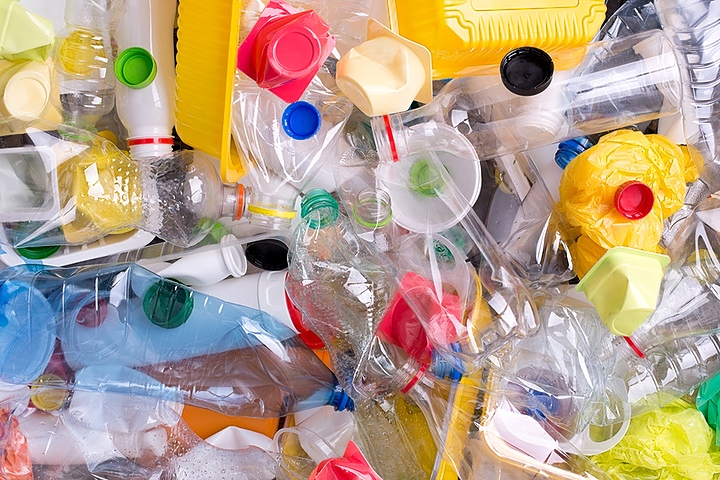PLASTICS RECYCLING
NGO urges swift, collaborative action to scale up reuse systems / Call for shared infrastructure, standardised packaging and incentivising returns – EMF report
The Ellen MacArthur Foundation (EMF, Cowes, UK; www.ellenmacarthurfoundation.org) is calling for a fresh approach to “revolutionise” the reuse of plastics.
“Reuse urgently needs to be scaled and collaboration is essential to make the economics work,” the NGO said in its latest study entitled Unlocking a reuse revolution: scaling returnable packaging, developed in partnership with Systemiq (London; www.systemiq.earth) and Eunomia (Bristol, UK; www.eunomia.co.uk).
“Reuse urgently needs to be scaled and collaboration is essential to make the economics work,” the NGO said in its latest study entitled Unlocking a reuse revolution: scaling returnable packaging, developed in partnership with Systemiq (London; www.systemiq.earth) and Eunomia (Bristol, UK; www.eunomia.co.uk).
 The study estimates that shifting to reuse could reduce total annual plastic leakage to the ocean by more than 20% by 2040 (Photo: Fotolia/photka) |
Using France as a representative geography, the report models four different returnable packaging applications – beverages, personal care, fresh food, and food cupboard (dry goods) – and their single-use equivalents across three theoretical scenarios: system change, collaborative approach, and fragmented effort.
The system-change scenario is roughly aligned with the most advanced existing systems, such as for certain types of beverages, and depicts a long-term vision for optimised return models. However, for less mature applications, such as personal care or food products, the EMF said further research and development work is needed for its long-term vision to be within reach.
To make the economics work for returnable packaging and maximise the environmental opportunity, the study identified three key performance drivers. These are a scaled and shared infrastructure to provide customers with a “consistent and streamlined” experience; standardised and pooled packaging for certain product types; and incentivising customers to return their packaging.
EMF said all stakeholders must come together and take three actions to achieve this vision, namely to adopt a fundamentally new approach; kickstart a transition by deploying collaborative multi-brand and multi-retailer systems; and scale up these systems across a greater range of products, sectors, and geographies.
“Scaling reuse will be a major transition and won’t happen overnight,” said Sander Defruyt, EMF’s plastics initiative lead. “We now need to see more research and groundwork to make return models at scale a reality. No single organisation can drive the necessary change by itself; it will require a collaborative effort from businesses, policymakers, and financial institutions.”
Related: Little progress at third round of UN plastics treaty talks
According to the study data, a shift to reuse models is estimated to reduce total annual plastic leakage to the ocean by more than 20% by 2040. Moreover, adopting reuse models at scale can significantly cut virgin material use, greenhouse gas (GHG) emissions, and water consumption.
As an example – under the system-change scenario – returnable plastic packaging could potentially reduce GHG emissions and water use by between 35% and 70%, and material use by 45% to 75% for selected applications versus single-use packaging. Even at lower scale and without standardised packaging or industry-wide collaboration, EMF said most applications achieve positive environmental outcomes.
But the NGO said that in some applications, a certain level of scale and system efficiency is necessary to compete on an environmental basis with single-use packaging. For instance, when compared with single-use flexible packaging, rigid, returnable packaging only outperforms on GHG emissions and material use when a collaborative approach is applied.
Related: Most firms to miss 2025 packaging targets
Revenues from unreturned deposits can also have a significant and favourable impact on the economic viability of return systems. They can help to de-risk or finance the transition phase and cover the lost value of unreturned packaging when return rates are low, before higher return rates materialise.
However, EMF said that both the system setup and wider governance are crucial to ensure that revenues are channelled correctly to support the economic viability of return systems.
“Reaching the outcomes of our most ambitious scenario will be a massive transformation, requiring investment to evolve and retrofit equipment and adapt supply chains to suit a reuse system, but if the same expertise and drive to build hyper-efficient single-use systems can be reutilised to build reuse, these outcomes are achievable,” the report concluded.
More than 60 leading organisations were involved in developing the study, including the European Investment Bank (London; www.eib.org), national governments, reuse experts, and major brands and retailers, such as Coca-Cola (Atlanta, Georgia, USA; www.coca-colacompany.com), Danone (Paris; www.danone.com), PepsiCo (Purchase, New York, USA; www.pepsico.com), and Unilever (London; www.unilever.com), among others.
08.12.2023 Plasteurope.com [254064-0]
Published on 08.12.2023
